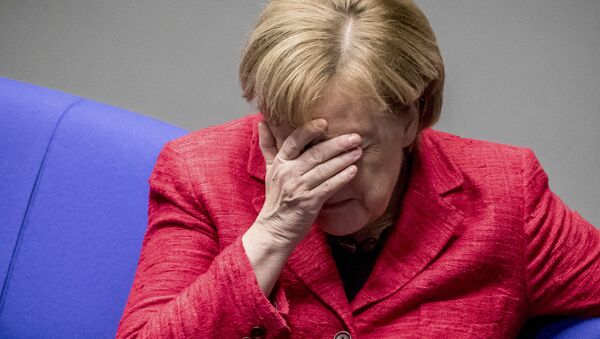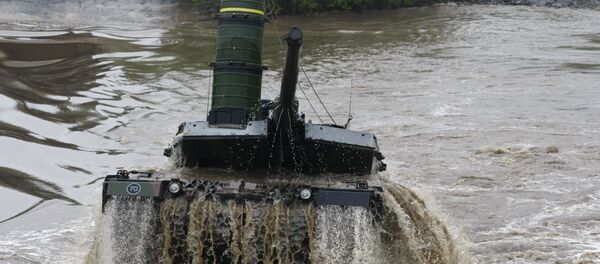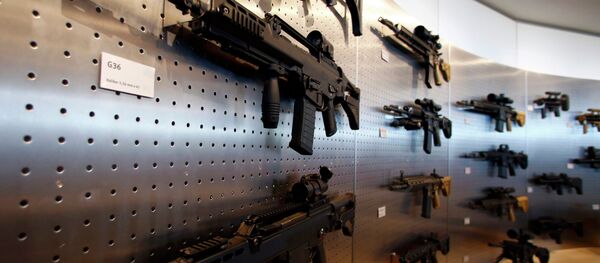French Ambassador to Berlin Anne-Marie Descotes said that Germany’s arms export policy and complicated licensing rules put future bilateral defence projects under threat.
In response, Berlin agreed to extend the already existing export licenses for nine months and called on Paris and London to ensure that weapons' systems deliveries to Saudi Arabia or the United Arab Emirates (UAE) are not used in the conflict in Yemen.
Sputnik discussed Germany’s decision to extend its ban on arms sales to Saudi Arabia with Peter Schulze, a professor of politics at Georg-August-University in Göttingen, Germany.
READ MORE: German Government Extends Ban on Arms Export to Saudi Arabia — Report
Sputnik: Why in your view has Germany decided to extend its ban on arms sale to Saudi Arabia?
Peter Schulze: First of all, there was, of course, very strong opposition against cancelling any of arms [sales] to Saudi Arabia from the Christian Democratic coalition partner. And, of course, there is pressure from the arms industry in Germany, especially from […] but as well from Schleswig-Holstein because thirty patrol boats which are claimed to be shipped to Saudi Arabia are built by a former East-German shipbuilding company in Wolgast and you can imagine that such a big task is very helpful for the local economy. And therefore you’ve has a combination of political and economic pressure to stick to the contracts and to deliver. But, of course, there is another mood within the Social Democratic Party, and this was already visible when the government was formed last year, that export of German arms into conflict areas should be absolutely prohibited and only the already existing contracts should be served. So, this is an ongoing struggle in the coalition government which will not end by the turn of the coalition.
Sputnik: How important really are German arms sales to Riyadh?
READ MORE: Germany May Extend Ban on Arms Sales to Saudi Arabia Beyond Deadline — Reports
Sputnik: To what extent is Riyadh dependent on these arms from Germany?
Peter Schulze: Of course, [not] the prices are metric figure here and, of course, contents and quality; I mean, you can buy patrol boats in South Korea and in other countries. I think the German arms industry is much more dependent on Riyadh than Riyadh is dependent on arms deliveries from Germany. Therefore is Germany drops out of this market, then, of course, it will lose the market; and secondly, dropping out will have a spillover effect on other potential partners in the region and elsewhere.
Peter Schulze: I don’t think this is the case now, putting the export on a kind of a temporary and very fragile basis up to 30 September and probably to the end of this year; other competitors will step in if Saudi Arabia is going to leave the contract as well. And secondly, the Saudis can, of course, put Germany and the contract relations to trial and ask for damage expenses.
READ MORE: Airbus Removes German Parts From Its Plane Amid Berlin’s Saudi Arms Ban – Report
Sputnik: To what extent is the German governing coalition on the same page about this decision to extend the ban? Obviously, there must be some lobby from the arms producers that are concerned, right?
Peter Schulze: As I said initially, there are basically two camps in each party. And normally the Social Democratic Party is very restrictive on arms exports; but, of course, they are close to regional elections and due to the fade of other Social Democratic Party in the election polls – they are down to 15-17 percent which is basically half of the election results for the party – so they are not as solid behind a strict export control policy as they used to be. Some people who are in the party and the leading economists were arguing for a kind of a let’s wait and see extent, only from time to time the export [of] arms guarantees. And the CDU was different; the CDU was always not so strict about arms control; but again, the elections are coming, and then the 2019 regional elections and the European elections at the end of May. The CDU is for lighter and more flexible use of arms control policies but, of course, they are bound by not being portrayed in the public image as a kind of a party who supports war in Yemen which is done by German arms. It would be a very negative image.
The views and opinions expressed in this article are solely those of the speaker and do not necessarily reflect Sputnik's position.





